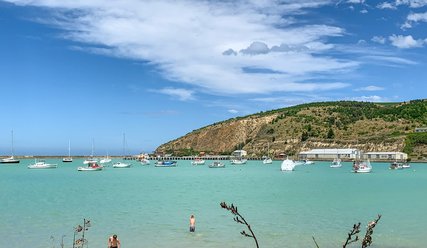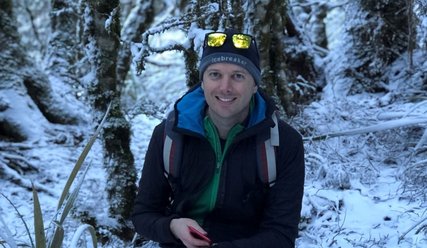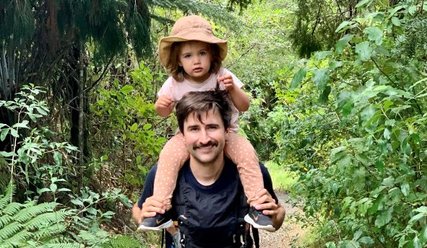From urban sprawl to urban bliss
The iconic movie Whale Rider provided the inspiration for Dr Valerie August to come and visit Aotearoa, but it was the people of rural Northland that made her want to stay.
Valerie hails from America, and trained in Southern California, where she found a passion for emergency and acute care. Her first job, however, saw her in a family clinic in an agricultural area on the outskirts of Los Angeles.
“They needed a doctor who could speak Spanish, and my father is Puerto Rican so I was familiar with the language,” she says. “But although I enjoyed the broad nature of being a GP, I didn’t enjoy the anonymity of such a large urban area. It was too much city for me!”
After watching the film starring Keisha Castle-Hughes as a young Māori girl desperate to take her place as the head of her tribe, Valerie wanted to see what New Zealand was really like. So in 2006 she took on a three month locum stint, working in Hokianga, Murupara, Oakura, and Gore.
“I really enjoyed it, but the people in the Hokianga were the ones that really made me fall in love with New Zealand,” she says. “They were so friendly, and everyone cared so much for each other. There was a real sense that you were part of a community, that you were connected to your patients.””
Three months later, in January 2007, she was back, supposedly for another three month stint – but ended up staying for seven years after meeting her husband Dallon!
But her thirst for travel hadn’t diminished so in 2014 the family headed to Qatar, an Arab country with the highest per capita income in the world, for three years living and working in a city of a million people.
“It’s very different to Northland,” she laughs, “But it was an interesting experience. There is a very high expectation of what medicine should be able to achieve for people and money is no object when it comes to accessing treatment.”
This is in stark contrast to Hokianga Health, a community owned, not-for-profit primary health care trust in Rawene. The Trust provides inpatient and accident and emergency services at the small rural hospital, along with community general practice clinics, mental health services, disability support services, public health promotion and community development initiatives. Valerie has also set up a skin surgery clinic. Serving a primarily Māori population of less than 7,000 (although this swells to more than 10,000 in the summer months with the influx of tourists), the area is classed as ‘deprived’ and the Trust model enables all services to be given with no charge to registered patients.
And in the end, the Hokianga community and a love of rural living drew Valerie back for the third, and, she says, final time.
“Although I love general practice, I did miss the acute care side of things, and here I get the opportunity to use my skills in all sorts of different way,” she says. “But the main thing about living and working here is that you are part of a community, that you are connected, that people care about each other.
“Many of our patients are people who whakapapa back to this area and have a terminal medical condition. They come home to be with their family and wider community for the last stages of their life, which says a lot.””
The extent of this love and support is something that Valerie and Dallon, a youth worker, experienced first-hand after the tragic sudden loss of their son Ihaka, aged 2, who died in his sleep last year from pneumonia. The compassion and kindness the community showed the couple and their other children eight-year-old Hera and one-year-old Kemara played an essential part in the grieving and recovery process.
“This is where I belong, and where I want to raise my family,” Valerie says. “I am putting down roots now - we have even bought a house!”
Valerie, a College Fellow who also holds a Fellowship in Rural Hospital Medicine, is passing on her passion for rural medicine by helping to teach rural immersion units to the next generation of doctors. She is also working towards a Diploma in Rural and Provincial Hospital Practice from the University of Otago.
“There is an under-recognised issue in New Zealand that the medical care delivery models used here were primarily designed and tested in urban areas,” she says. “Rural populations are challenged with different social factors but the policies we have in place take little account of that. This means that rural patients aren’t receiving the same level of service. Hopefully, my research will help shed more light on this issue so policy makers can understand the differences and make the changes that are needed.”


